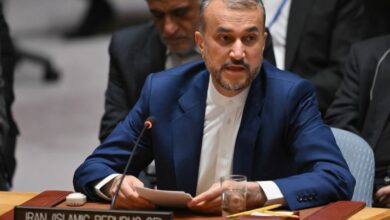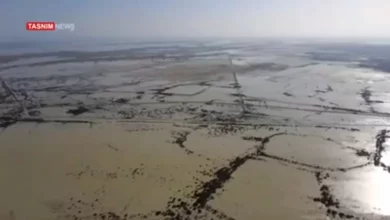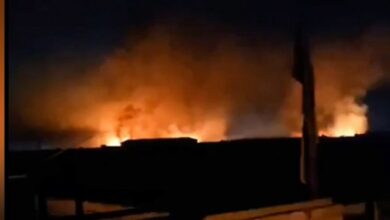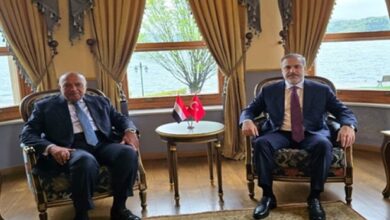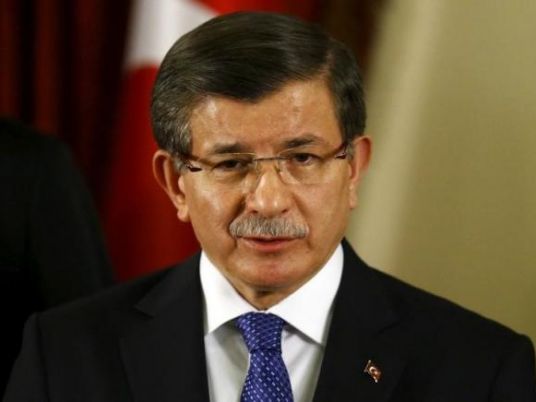
Turkey and Iran, two countries on opposite sides of Syria's civil war, agreed they must cooperate to end sectarian strife, including support for a fragile ceasefire, in the region after their leaders met in Tehran on Saturday.
Iran, along with Russia, has stood by Syrian President Bashar al-Assad in the five-year war, providing him with military and financial support, while Turkey is his most outspoken critic and has backed opposition forces.
"We may have different views but we cannot change our history or our geography," Turkish Prime Minister Ahmet Davutoglu said. "It is extremely important for Turkey and Iran to develop some common perspectives in order to end our region's fight among brothers, to stop the ethnic and sectarian conflicts."
Iranian President Hassan Rouhani echoed the sentiment.
"We believe regional issues should only be resolved by the regional countries and nations. Iran and Turkey's cooperation would be constructive in bringing lasting peace to the region," he was quoted as saying by state news agency IRNA in a meeting Davutoglu.
Majority-Sunni Turkey is close to Saudi Arabia, which has cut its diplomatic ties with Shi'ite Iran and is concerned about Tehran's growing clout in Lebanon, Syria and Yemen.
"We have our differences on some regional issues, but we are determined to manage the differences to reach stability in the region … Iran and Turkey would both benefit from regional security and stability," said Iranian Vice-President Eshagh Jahangiri, standing alongside Davutoglu in comments carried live by Turkey's NTV and Iran's Press TV.
The meeting, days before the planned resumption of Syrian peace talks in Geneva, also focused on a ceasefire that is largely holding in Turkey's war-torn neighbor.
"We believe staunching the bloodshed will establish an important basis for political negotiations. To this end, Turkey and Iran will, together and separately, undertake initiatives with the sides with which they have influence," Davutoglu told reporters after meeting Rouhani, who he said would visit Turkey.
Trade potential
Reaping trade benefits from the easing of international sanctions against Iran in January was also discussed.
The removal of the sanctions means the two neighbors can easily exceed their previous trade target of US$30 billion annually, Davutoglu said.
"The main obstacle that prevented us from reaching our goal were the sanctions. Being free of those, means we can easily surpass our goal of $30 billion," Davutoglu said, adding he hoped to encourage mutual direct investment.
Trade between the two nations was $9.7 billion in 2015, according to the Turkish Statistical Institute.
Turkey has trailed other European countries eager to tap into Iran's $400 billion economy after world powers, led by the United States, reached an agreement with Tehran last year that seeks to prevent Iran from developing nuclear weapons.
Turkey mainly sells machinery, vehicles and iron and steel products to Iran. Oil and natural gas make up 90 percent of Iranian exports to Turkey, the Turkish Foreign Ministry said.
Turkey will serve as a key transit route for Iranian energy supplies to Europe and wants to integrate high-speed rail projects to connect ports on its Mediterranean and Black Sea coasts with Iran, Davutoglu said.

